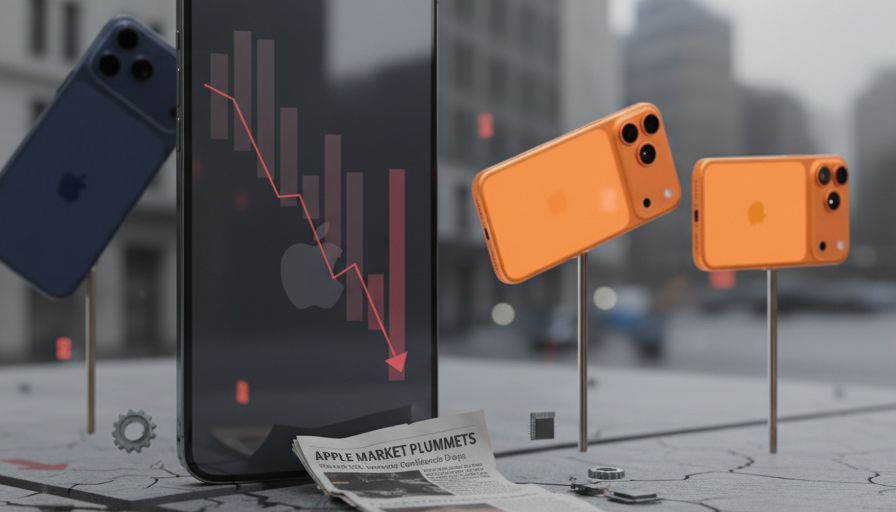Apple has always been synonymous with innovation. Every product launch grabs the attention of investors, tech enthusiasts, and consumers alike. Yet, the recent iPhone 17 unveiling on September 9 surprised many. In just two days, Apple’s market value dropped by over $112 billion, raising concerns about the company’s innovation strategy and its place in the tech industry.
The market reacted immediately. Apple’s shares fell 1.5% right after the launch and then dropped another 3.23% the next day, closing at $226.79. Investors had hoped for a disruptive product lineup. Instead, they saw mostly incremental changes—slimmer designs and modest hardware tweaks—that failed to meet expectations.
Incremental Updates Leave Investors Wanting More
Wall Street was looking for bold moves and groundbreaking technology. Instead, Apple delivered subtle improvements. While positive, these changes did not satisfy investors hoping for innovations that could redefine the smartphone market.
Adding to the disappointment, Apple announced that a major Siri overhaul would be delayed until 2026. Siri, once a leading voice assistant, is now lagging behind competitors like Google Assistant and Amazon Alexa. The delay raised fears that Apple is falling behind in the artificial intelligence (AI) race, an area critical for future growth.
Falling Behind in AI
AI has become a central battleground for tech companies. While Apple delays improvements, competitors such as Google and Samsung are pushing ahead aggressively. Microsoft and Nvidia have already posted double-digit gains this year, largely due to their leadership in AI. This widening gap has investors questioning whether Apple can maintain its innovative edge in the years to come.
Stock Performance and Market Context
Apple’s stock has faced challenges throughout the year, including a 6.4% decline before the iPhone 17 launch. Recent setbacks have intensified concerns about the company’s growth prospects. Analysts suggest that without disruptive technology, incremental updates may not be enough to keep investor enthusiasm high.
Profit margins are also under scrutiny. Minor upgrades may not justify price increases, and consumers could delay purchases if improvements seem modest. Apple now faces the challenge of balancing innovation, pricing, and consumer expectations more than ever.
Investor and Consumer Sentiment
Investor sentiment strongly influences stock performance. The market reaction reflects more than routine profit-taking; it signals worry about Apple’s long-term strategy. DA Davidson summarized it well: “Until Apple can redefine its products, growth will remain constrained.”
Consumers are cautious too. Many expected a transformative iPhone experience. The modest updates may lead some to reconsider their purchase decisions, affecting sales and market perception.
The Path Forward
Apple faces a critical challenge. To regain investor confidence and excite consumers, the company must embrace bold innovation. AI, in particular, offers a significant opportunity. Enhancing Siri and integrating AI across devices could restore Apple’s competitive advantage and revitalize its product lineup.
Modern consumers expect more than incremental improvements. They want devices that meaningfully enhance their daily lives. Meeting these expectations will be essential for Apple to maintain market leadership.
The iPhone 17 launch highlights the delicate balance between innovation, market expectations, and investor confidence. Incremental updates, combined with delayed AI features, have raised doubts about Apple’s future strategy.
Looking ahead, Apple must be flexible, embrace AI, and deliver truly innovative products. Its next moves will influence not only its stock performance but also the future of smartphones, AI integration, and global consumer expectations.
Apple remains a technology powerhouse, but the pressure to innovate has never been greater. Investors, consumers, and tech enthusiasts will be watching closely to see if the company can once again transform the market or if it will need to rethink its strategy in a rapidly evolving industry.





Good